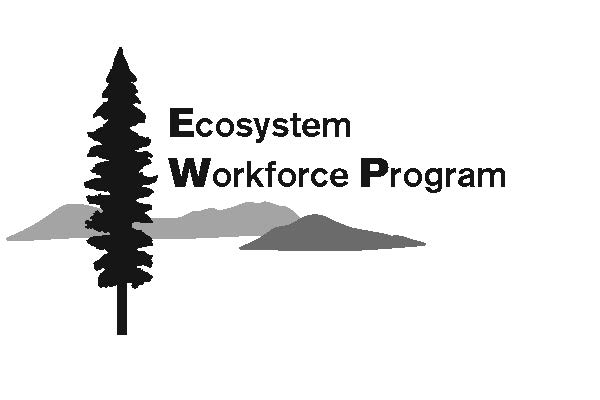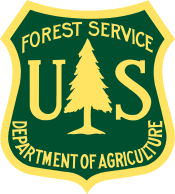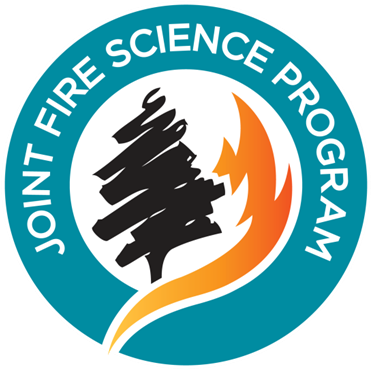Publications Library
Anthropogenic climate change impacts exacerbate summer forest fires in California. PNAS. 2023;120. Anthropogenic climate change impacts exacerbate summer forest fires in California.pdf (605.57 KB)
Anthropogenic climate change impacts exacerbate summer forest fires in California.pdf (605.57 KB)
Anthropogenic climate change impacts exacerbate summer forest fires in California. PNAS. 2023;120. Anthropogenic climate change impacts exacerbate summer forest fires in California.pdf (605.57 KB)
Anthropogenic climate change impacts exacerbate summer forest fires in California.pdf (605.57 KB)
. Building water resilience in the face of cascading wildfire risks. Science Advances. 2023;9(37). Available at: https://www.science.org/doi/10.1126/sciadv.adf9534. sciadv.adf9534.pdf (825.23 KB)
sciadv.adf9534.pdf (825.23 KB)
Burning trees in frozen soil: Simulating fire, vegetation, soil, and hydrology in the boreal forests of Alaska. Ecological Modelling. 2023;481.
Continental-scale Atmospheric Impacts of the 2020 Western U.S. Wildfires. Atmospheric Environment. 2023;294. Continental-scale Atmospheric Impacts of the 2020 Western U.S. Wildfires.pdf (4.34 MB)
Continental-scale Atmospheric Impacts of the 2020 Western U.S. Wildfires.pdf (4.34 MB)
. Cross-boundary cooperation in wildfire management during the custodial management period of the US Forest Service: A case study of the eastern Cascades of Oregon, USA, 1905–1945. Land Use Policy. 2023;127.
. A data‐driven analysis and optimization of the impact of prescribed fire programs on wildfire risk in different regions of the USA. Natural Hazards. 2023. A data-driven analysis and optimization of the impact of prescribed fire programs on wildfire risk in different regions of the USA.pdf (2.13 MB)
A data-driven analysis and optimization of the impact of prescribed fire programs on wildfire risk in different regions of the USA.pdf (2.13 MB)
. Different approaches make comparing studies of burn severity challenging: a review of methods used to link remotely sensed data with the Composite Burn Index. International Journal of Wildland Fire . 2023. Available at: https://www.publish.csiro.au/wf/pdf/WF22050. Different approaches make comparing studies of burn severity challenging- a review of methods used to link remotely sensed data with the Composite Burn Index.pdf (2.49 MB)
Different approaches make comparing studies of burn severity challenging- a review of methods used to link remotely sensed data with the Composite Burn Index.pdf (2.49 MB)
Downslope Wind-Driven Fires in the Western United States. Earth's Future. 2023;11(5). Downslope Wind-Driven Fires in the Western United States.pdf (8.46 MB)
Downslope Wind-Driven Fires in the Western United States.pdf (8.46 MB)
Downwind Fire and Smoke Detection during a Controlled Burn—Analyzing the Feasibility and Robustness of Several Downwind Wildfire Sensing Modalities through Real World Applications. Fire. 2023;6(9). Available at: https://www.mdpi.com/2571-6255/6/9/356. fire-06-00356.pdf (5.95 MB)
fire-06-00356.pdf (5.95 MB)
DUET - Distribution of Understory using Elliptical Transport: A mechanistic model of leaf litter and herbaceous spatial distribution based on tree canopy structure. Ecological Modelling. 2023;483.
Exploring and Testing Wildfire Risk Decision-Making in the Face of Deep Uncertainty. Fire. 2023;6(7). fire-06-00276-v3.pdf (6.02 MB)
fire-06-00276-v3.pdf (6.02 MB)
Forest water-use efficiency: Effects of climate change and management on the coupling of carbon and water processes. Forest Ecology and Management. 2023;534. Forest water-use efficiency: Effects of climate change and management on the coupling of carbon and water processes.pdf (1 MB)
Forest water-use efficiency: Effects of climate change and management on the coupling of carbon and water processes.pdf (1 MB)
Fuel Profiles and Biomass Carbon Following Bark Beetle Outbreaks: Insights for Disturbance Interactions from a Historical Silvicultural Experiment. Ecosystems. 2023. Available at: https://www.fs.usda.gov/research/treesearch/65972. rmrs_2023_morris_j001.pdf (2.15 MB)
rmrs_2023_morris_j001.pdf (2.15 MB)
How social and ecological characteristics shape transaction costs in polycentric wildfire governance: insights from the Sequoia-Kings Canyon Ecosystem, California, USA. Ecology and Society . 2023;28(1). Available at: https://ecologyandsociety.org/vol28/iss1/art34/. How social and ecological characteristics shape transaction costs in polycentric wildfire governance- insights from the Sequoia-Kings Canyon Ecosystem, California, USA.pdf (971.08 KB)
How social and ecological characteristics shape transaction costs in polycentric wildfire governance- insights from the Sequoia-Kings Canyon Ecosystem, California, USA.pdf (971.08 KB)
. Identifying building locations in the wildland–urban interface before and after fires with convolutional neural networks. International Journal of Wildland Fire. 2023.
. Lizards' response to the sound of fire is modified by fire history. Animal Behaviour. 2023;196:91-102. 1-s2.0-S0003347222003207-main.pdf (1.46 MB)
1-s2.0-S0003347222003207-main.pdf (1.46 MB)
Mesic mixed-conifer forests are resilient to both historical high-severity fire and contemporary reburns in the US Northern Rocky Mountains. Forest Ecology and Management. 2023;545.
Metrics and Considerations for Evaluating How Forest Treatments Alter Wildfire Behavior and Effects. Journal of Forestry. 2023:1-18. Metrics and considerations for eval forest treatments.pdf (1.47 MB)
Metrics and considerations for eval forest treatments.pdf (1.47 MB)
Metrics and Considerations for Evaluating How Forest Treatments Alter Wildfire Behavior and Effects. Journal of Forestry. 2023:1-18. Metrics and considerations for eval forest treatments.pdf (1.47 MB)
Metrics and considerations for eval forest treatments.pdf (1.47 MB)
. Multiple Stories, Multiple Marginalities: The Labor-Intensive Forest and Fire Stewardship Workforce in Oregon. Fire. 2023;6(7):268. fire-06-00268.pdf (317.97 KB)
fire-06-00268.pdf (317.97 KB)
Proposing a Governance Model for Environmental Crises. Land. 2023;12(3). Available at: https://www.mdpi.com/2073-445X/12/3/597. Proposing a Governance Model for Environmental Crises.pdf (328.05 KB)
Proposing a Governance Model for Environmental Crises.pdf (328.05 KB)
Quantifying the contribution of major carbon producers to increases in vapor pressure deficit and burned area in western US and southwestern Canadian forests. Environmental Research Letters. 2023;18. Quantifying the contribution of major carbon producers to increases in vapor pressure deficit and burned area in western US and southwestern Canadian forests .pdf (6.65 MB)
Quantifying the contribution of major carbon producers to increases in vapor pressure deficit and burned area in western US and southwestern Canadian forests .pdf (6.65 MB)
Reduced fire severity offers near-term buffer to climate-driven declines in conifer resilience across the western United States. PNAS. 2023;120(11). pnas.2208120120.pdf (5.12 MB)
pnas.2208120120.pdf (5.12 MB)
The Shared Stewardship Strategy in the Southern United States: Lessons Learned. Journal of Forestry. 2023.





